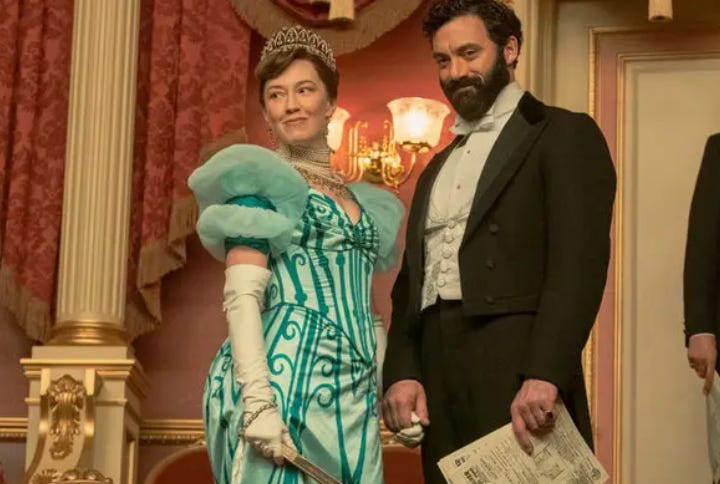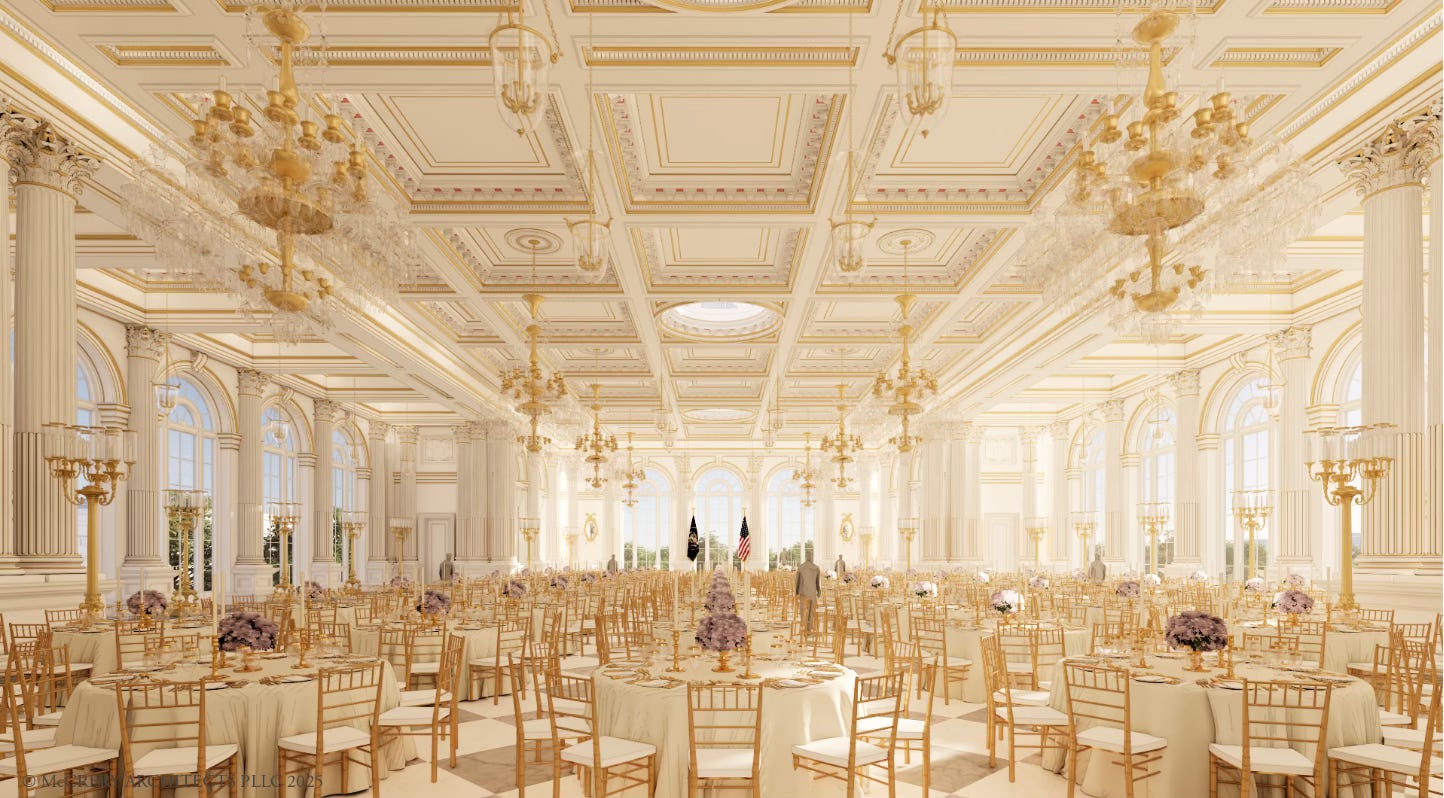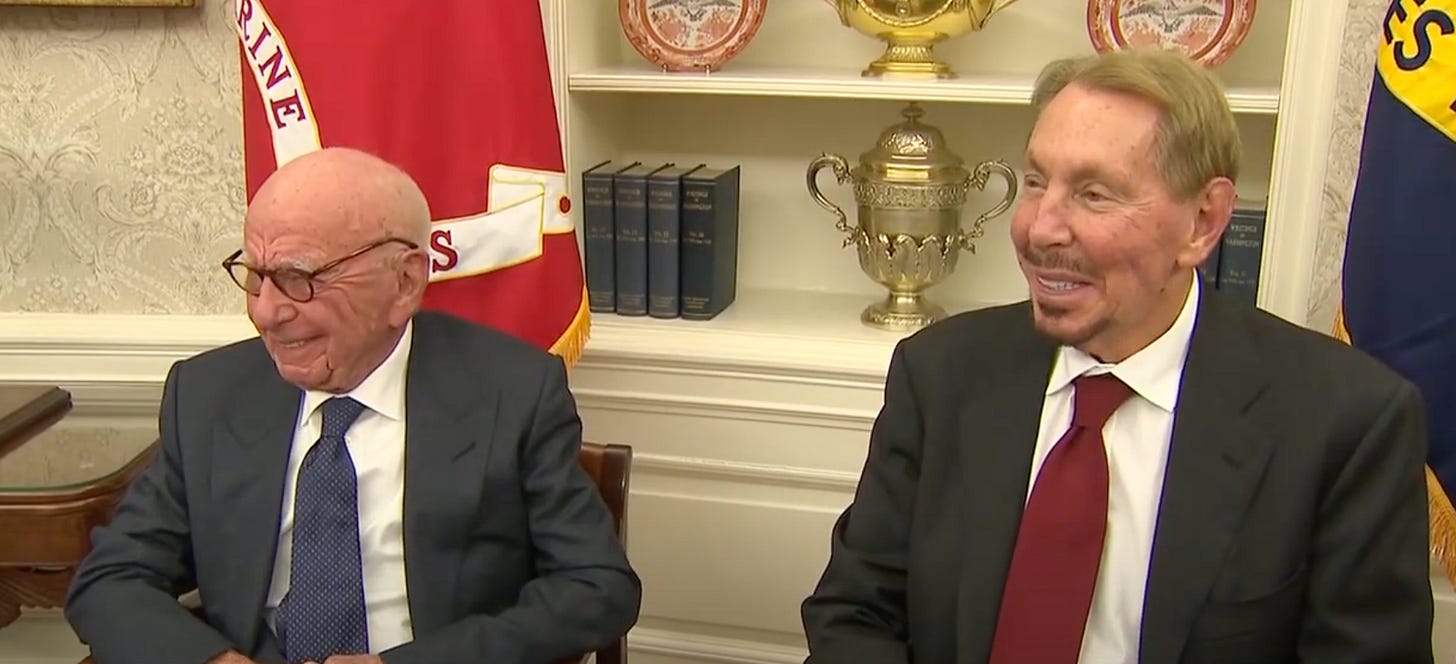Are We in the Golden Age Yet?
We glamorize the past and fear the future, when history shows us the opposite should be true
As we enter another week of headlines that tell us we’re in unprecedented times, I thought it was important to remind my readers: America, we've been here before.
This weekend, like millions of others, I finished this season of HBO's The Gilded Age. As a fan of historical fiction, it's hard to resist the story of one of America's pivotal moments. It also reminded me again of our current moment — we are in the ballroom building and robber barons-cashing-in part of the show.
Maybe this is Trump's "Golden Age" like he's promised, or maybe (as I’ve written before) it's a rebranded version of the Gilded Age (1870-1900), when wealth concentrated to the top 1 percent, corruption flourished, technology disrupted entire industries, and inequality became ostentatious.
Whatever it is, it feels familiar. We have short memories about what our country has endured. We allow the current narrative to claim we've never been here before, when much of this is precedented: from J.P. Morgan to today's private equity; from Rockefeller oil to tech monopolies; from railroad barons to space cowboys.
We've Built Ballrooms Before
Many things we declare unprecedented about Trump aren't actually without precedent — they're just super-charged for his supposed Golden Age.
This week, flanked by his Attorney General, Defense Secretary, and FBI Director, the President announced he would bring order to what he declared was crime-riddled Washington D.C. Facts aren't on his side — overall violent crime is down in D.C. Ignoring facts, he shared anecdotes and announced he would take control of D.C. Police and introduce the National Guard to the capital.
While his actions continue to test presidential power limits, and could present challenges ahead, the National Guard has been deployed in D.C. before: The D.C. Militia guarded Lincoln's Inauguration, the National Guard was deployed after Martin Luther King Jr.'s assassination, even in President Trump’s last term during George Floyd protests. More recently we’ve seen the National Guard here in Los Angeles, and the show of force had little positive effect.
In the same press conference, Trump repeatedly mentioned the briefing room crowd had never been bigger and declared it evidence that the White House needed a ballroom. Not a larger briefing room for the press, he joked — just a ballroom. Like Theodore Roosevelt's White House renovation at the tail end of the Gilded Age with the State Dining Room expansion, Trump wants to match perceived modern grandiosity with a new ballroom.
Again, is this Trump's "Golden Age" or something closer to gilded — a shiny surface over rot beneath?
Make Oligarchy Great Again
We've lived through robber barons exploiting loopholes, under-regulated industries, and media influence. We're seeing it again as a feature of Trump's "golden age."
Changes in media and our cultural fixation on oligarchs mirror this playbook. Think Rupert Murdoch's influence, or newspapers bought by billionaires like Jeff Bezos (The Washington Post) and Patrick Soon-Shiong (Los Angeles Times). Over time, these institutions seemingly drift toward their owners' views.
The Gilded Age featured much the same: yellow journalism, sensational headlines, and power brokers wielding influence. Is Trump's "golden age" when we skip formalities and just own the channel?
We see this in politics awash with money. Frankly both parties enabled this, allowing money to infect politics, arguing it was necessary to compete with the other side. The predictable outcome? The monied reign in politics. And yet we act shocked when tech executives sit in Cabinet rooms or former senators become pharmaceutical lobbyists. It’s because we’ve been playing the game as it is, rather than the game as it should be.
The Pendulum Swings
So are we in the Golden Age yet?
Walk through any major American city past gleaming towers, fancy coffee shops, and luxury condo construction cranes. You'll find tent cities. We have innovation that would astound Carnegie and Rockefeller — artificial intelligence, gene therapy, space tourism — alongside what would be more familiar inequality.
The stock market soars. Tech barons accumulate wealth at speeds dwarfing historical predecessors, benefiting from White House directives to tone down AI regulation. Political power consolidates around those who can afford influence.
The saying is if those who don’t learn history are doomed to repeat it. Maybe we’re doomed to repeat it either way. And yet somehow we glamorize the past and fear our future, while history tells us the opposite should be true.
The Gilded Age didn't end with one election or reform. As I’ve written before, it slowly gave way to the Progressive Era through sustained pressure: labor organizing, antitrust legislation, regulatory reforms. Recognition that rot beneath splendor was unbearable.
Change came not from above but below, not from saviors but from citizens who refused to accept extreme inequality as inevitable.
The real question isn't whether we're in a golden age — we are, for some. The question is whether we'll recognize it for what it is and do the work required to build something better. History suggests we can, and we will.





